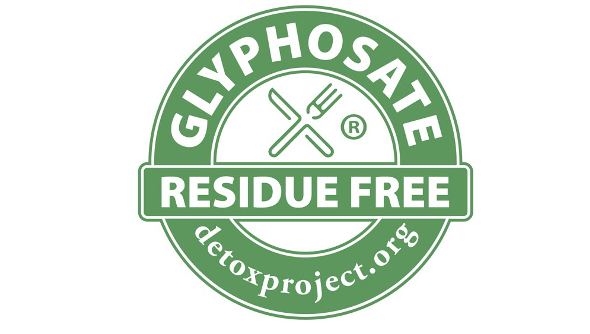Mamavation Hosts Massive Glyphosate Free Product Giveaway to Begin Feb. 7
FOR IMMEDIATE RELEASE
Leah Segedie, founder of Mamavation.com, will host a product giveaway that concentrates on Glyphosate Free brands from all over North America.
What: Mamavation’s Big Glyphosate-Free Giveaway
When: Feb. 7-14, 2023
Where: Two giveaways on Mamavation and one on Instagram
Info: Mamavation.com
LOS ANGELES (February 6, 2023) – Mamavation, an eco-wellness community for women interested in safe products for their homes and families, will host a giveaway of glyphosate-free products from Feb. 7-14 on their website and Instagram.
The community has a reach through its email list and social media platforms of over 300,000 consumer advocates and influencers who are interested in monitoring the levels of toxic chemicals in commonly used products.
“Mamavation consumers are in love with brands that provide more transparency in this constantly changing world,” said Mamavation founder Leah Segedie. “This is why we are happy to support brands that have gone that extra mile to prove they are free from the toxic herbicide glyphosate."
Sponsors will donate a range of products worth a total of more than $4,000, which will be divided among three winners.
The post on Mamavation.com will discuss glyphosate, ways to avoid it, current news or interesting topics and the giveaway. The site will also go into detail on how a brand becomes Glyphosate Residue Free.
Glyphosate is one of the world’s most widely used pesticides, applied primarily as an herbicide and often also as a pre-harvest drying aid in major crops such as oats, wheat and pulses. Outside of agriculture it is widely used as a weed killer for parks and gardens in products such as Roundup. As consumers become aware of the dangers of glyphosate contamination in their food supply, many are turning to the Glyphosate Residue Free (GRF) certification seal for peace of mind as they choose their groceries.
Natural Product Brands Respond to Benefit of GRF Seal
Natural product brands responded positively to the giveaway and support testing for toxic chemicals, especially glyphosate, which is widely used. Joline Rivera, who donated products for the giveaway from her Chicago-based Red Belly Honey company, said that she places a high value on the “tenacity and will it takes to be glyphosate residue-free” and that her audience is “very impressed” by certifications, so the company pays special attention to them. She says the company was involved early in the labeling movement in California and takes it seriously.
“Issues surrounding glyphosate are very familiar to us — knowing our product is pesticide-free tells our customers we care about what they’re putting into their bodies,” Rivera said. “We have a motto around here … if it has to do with helping people feel better and bees living longer — it has to do with Red Belly Honey."
Paul Greive, founder and vice president of sales and marketing of Pasturebird.com, which sells pasture-raised chicken, said consumers have found loopholes in the food labeling system and seek greater transparency from companies claiming to sell safe and healthy food. “The Glyphosate Residue Free label provides consumers with an unbiased, lab-based verification that their food is free of glyphosate,” Greive said. “We’re excited to partner with Mamavation and The Detox Project to bring the integrity and transparency that modern consumers expect.”
The Detox Project provides Glyphosate Residue Free certification, which verifies that products do not contain the world’s most used herbicide. These types of certification are growing fast in the U.S. and around the world as consumers become more concerned about toxic chemicals in their food and household products. Products are tested by independent laboratories and must meet stringent standards to use the certification.
Frank Bergin, president of North Stonington, Connecticut-based Jovial Foods, recalls that, when he heard about The Detox Project, he “fell in love with their mission” because transparency in the food industry has become so important to consumers. “We owe it to consumers to be transparent about ingredients,” he said. Mamavation shares their mission to help consumers find non-toxic food, Bergin said. “We are so excited to partner with them for the first-ever Big Glyphosate Free Giveaway this month!” he added.
Consumers can begin entering the contest on the Mamavation website on Feb. 7.
About Mamavation
Mamavation, founded by Leah Segedie, is an online community and investigative service that empowers women through eco-wellness. Mamavation focuses on wellness as a lifestyle, health for everyone and sustainability. It is a judgment-free zone of women from all walks of life – from deep green to light green, united by a determination to provide healthier homes, support the brands that create better products, and treat other women with respect and dignity. Mamavation has been investigating grocery store products and food for several years and has a list of recommended toxic-free products.
For more information, visit Mamavation at www.mamavation.com or contact leah@mamavation.com. Follow Mamavation on Facebook, Instagram, Pinterest, Twitter and YouTube.
About the Glyphosate Residue Free Certification Program
Glyphosate Residue Free certification verifies that a specific food, supplement or beauty product does not contain the world’s most used herbicide. Glyphosate Residue Free certification is one of the fastest growing certifications in the U.S. and around the world. You can find the brands and the products that are already certified here. A third-party ISO 17025 accredited laboratory regularly tests certified products to make sure they do not contain glyphosate residues. To be certified Glyphosate Residue Free, products must have no glyphosate residues down to government-recognized limits of detection (LODs) for food, commodity and supplement samples (usually 0.01 ppm), and lower levels than default government Maximum Residue Limits (MRLs) in the European Union and Japan.
For more information, visit The Detox Project at www.detoxproject.org or contact info@detoxproject.org. Follow The Detox Project and the Glyphosate Residue Free Certification Program on Instagram, Facebook, Twitter and LinkedIn.
Media Contacts
Leah Segedie, Mamavation, leah@mamavation.com
Steven Hoffman, Compass Natural, steve@compassnaturalmarketing.com
Market for Certified Glyphosate Residue Free Products Grew 170% Year over Year
Photo: Pexels
This article originally appeared in Presence Marketing’s January 2022 Industry Newsletter
By Steve Hoffman
Leading market research provider SPINS reported in partnership with the Detox Project that sales of products that are certified Glyphosate Residue Free increased 170% year over year, from $197 million the previous year to $533 million in 2021. The Glyphosate Residue Free certification program was launched by the Detox Project in 2017, reported Sustainable Pulse. It is now one of the fastest growing certification programs in North America, according to a recent study conducted by Linkage Research & Consulting.
More than 90 brands have certified some or all of their products as Glyphosate Residue Free, including Oatly, MegaFood, Uncle Matt’s, Wedderspoon, Bluebird Botanicals, Malk, Nutiva, Once Upon a Farm, Califia Farms, Chobani and others. The certification program is administered by the Detox Project, a research and certification platform that supports transparency in food and supplements.
Henry Rowlands, Director of The Detox Project, said in a statement that “it is encouraging to see that consumers are becoming more aware of the harm that environmental toxins such as glyphosate can cause to themselves and their families. We support a toxic free future for our children and this can only be reached through mass public awareness. Food and supplement brands play a vital role in keeping consumers safe from toxic chemicals. The unsustainable industrial agricultural system, which has been poisoning the planet for so many decades, Is based on one single chemical – glyphosate. It is about time that we move towards a more regenerative future with glyphosate-based weed killers left in the past, where they belong,” Rowlands concluded.



